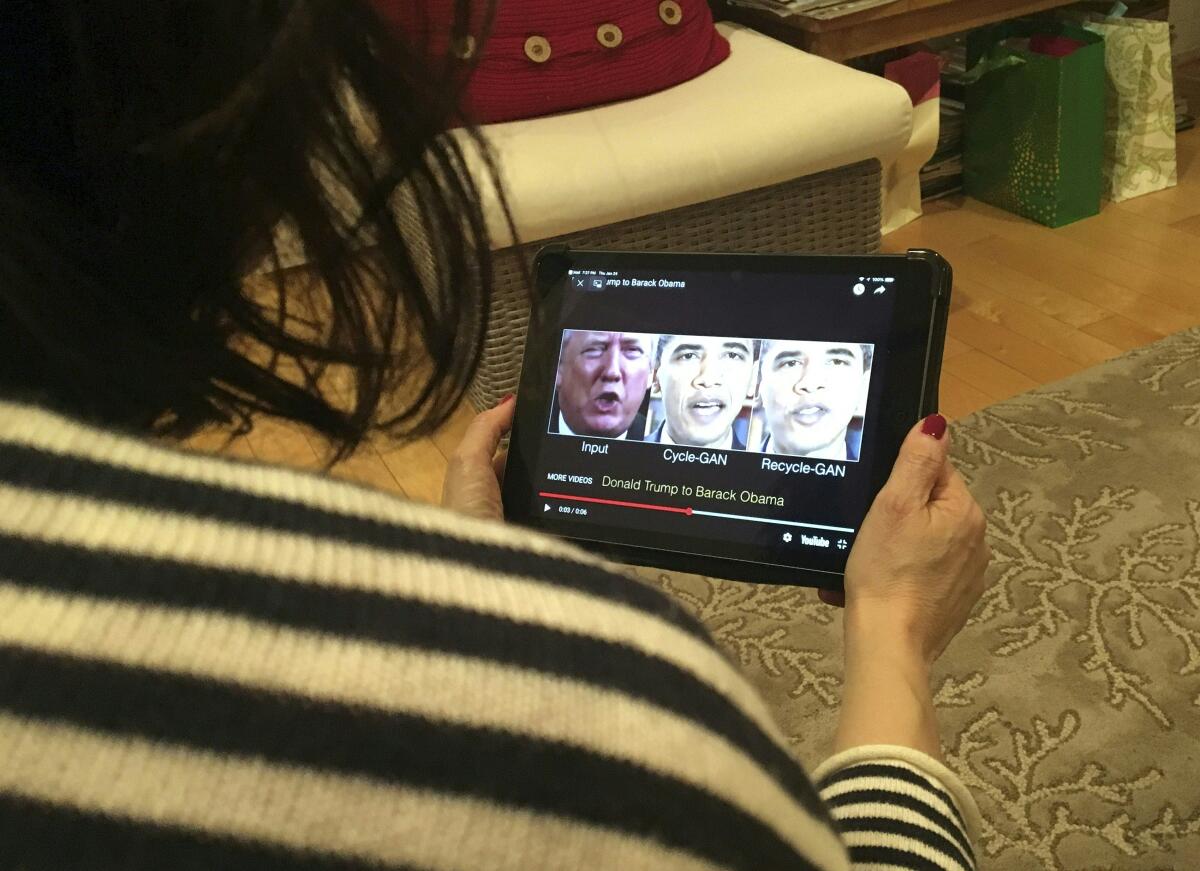Facebook bans ‘deepfake’ videos, but policy doesn’t cover parody or satire

- Share via
Facebook Inc. has shed more light on its efforts to eradicate doctored videos known as deepfakes, addressing an issue it has identified as an emergent threat ahead of the U.S. election.
The operator of the world’s largest social network pledged to remove content that has been “edited or synthesized” beyond adjustments for quality or clarity and is deemed likely to mislead viewers.
The new rules will not apply to parody or satire, however.
Videos that don’t immediately meet Facebook’s internal criteria for removal may still get fact-checked by more than 50 organizations the social media giant has partnered with worldwide. Facebook will collaborate with Reuters to help newsrooms spot deepfakes through free online courses.
Facebook was widely criticized last year for not reacting faster to a widely seen video of House Speaker Nancy Pelosi that had been edited to make it look as though she was slurring her speech. It took the company more than a day to label the video as “fake,” at which point its distribution was limited by Facebook’s algorithms, but the company didn’t remove it altogether. Dozens of Democrats signed a letter to Chief Executive Mark Zuckerberg, accusing him of not taking the situation seriously and saying that Facebook would be “grossly unprepared” for the 2020 elections.
“Facebook wants you to think the problem is video-editing technology, but the real problem is Facebook’s refusal to stop the spread of disinformation,” Drew Hammill, Pelosi’s deputy chief of staff, said in a tweet Tuesday.
The video wasn’t technically a deepfake, which would mean it was completely fabricated, but still introduced Facebook to the kinds of misinformation it’ll face heading into the 2020 election. Facebook has since said it moved too slowly to curtail the reach of that video.
“We are strengthening our policy toward misleading manipulated videos that have been identified as deepfakes,” Monika Bickert, vice president of global policy management, wrote in a blog post. “While these videos are still rare on the internet, they present a significant challenge for our industry and society as their use increases.”
Other U.S. internet giants are also tightening up on content ahead of the elections. Alphabet Inc.’s Google is restricting misinformation and banning deepfakes in ads following criticism that internet companies ran ads from President Trump that were intentionally misleading.
Facebook’s policy details were first reported by the Washington Post.






